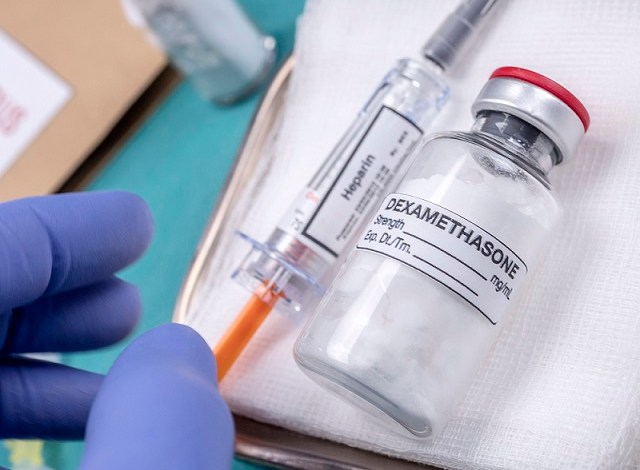
COVID-19 life saving drug Dexamethasone to be used only for severely ill patients: WHO
World Health Organisation (WHO) has weighed in on the positive news that came from the United Kingdom about the positive initial results of the Dexamethasone drug that has, according to the UK based researchers, proved to be the first life-saving drug against the novel coronavirus.
In reply to a question put to him by IndiaTVnews.com, WHO Executive Director, Dr Michael Ryan said that while the initial results are significant, the need for selective use of the drug could not be stressed further. "I cannot say this strongly enough. This drug is purely for use under close clinical supervision. It has shown, so far, to be useful in the treatment of severely ill COVID-19 patients, those who are on a ventilator, those who are in need of oxygen. While we are very pleased to see a life-saving intervention emerge, please let us use it properly and take forward what it has shown to be beneficial."
Dr Ryan further said that if we were to deal with COVID-19 effectively, it will have to be one of the many breakthroughs that we are going to need. "We should celebrate it but it's still preliminary data. It's from one study, it is significant, but we also have to see the real data, the full data. We will also have to review systematically other data received from around the world and on the basis of that we will put together the necessary expert group to look at all of that -- both research and clinical side and come to a conclusion about our clinical advice to countries," he said.
He further went on to say that there will be other factors that will come into play before we can safely put this drug to use on a large scale. "This is no time to rush or to change clinical practice. People need training, we need to understand what dozes to be used, how patients are going to be clinically assessed. We need to make sure there are supplies of the drug. We need to support countries to both access and utilise this drug in the most appropriate way possible," he added.
WHO Head of Clinical Care, Dr Janet Diaz, while adding to what Dr Ryan said, echoed similar sentiments. "It is really important to see the full data, the full report of the manuscript. Currently, we know that there are other ongoing randomized control trial testing. We are trying to aggregate data from those trials to give us a better understanding of the studies that are ongoing. And at the same time, putting into place the mechanisms in order to update our guidance in a transparent and trustworthy way with global experts."
"This is something that should be used in hospital for those who are critically ill but not for mild patients. We hope to have clearer recommendations and practice protocols in the near future," Dr Janet signed off with.
What is Dexamethasone?
Traditionally, Dexamethasone is used to treat conditions such as arthritis, blood/hormone/immune system disorders, allergic reactions, certain skin and eye conditions, breathing problems, certain bowel disorders, and certain cancers. It is also used as a test for an adrenal gland disorder (Cushing's syndrome).
This medication is a corticosteroid hormone (glucocorticoid). It decreases your body's natural defensive response and reduces symptoms such as swelling and allergic-type reactions.
Who manufactures Dexamethasone?
Dexamethasone has an Indian connection. The drug which is being acclaimed as a cheap solution to COVID-19 is manufactured by Cadila Healthcare or Zydus Cadila, based out of Ahmedabad.
What is Dexamethasone-COVID-19 relation?
Medical experts based in the United Kingdom have claimed that Dexamethasone has 'proved' to be the first life-saving drug against COVID-19. The claims made by the UK scientists state that the low-dose steroid treatment -- Dexamethasone -- is a major breakthrough in the fight against coronavirus.
"The drug cuts the risk of death b a third for patients on ventilators and for those on oxygen, it cuts deaths by a fifth. Had the drug been used in the UK from the beginning, up to 5,000 lives lost to COVID-19, could have been saved," researchers have claimed.